The Boy Scouts In Russia - [36]
The side of the pit nearest the road was almost open, though it was screened by bushes and foliage. Fred, however, was able to peer out and to see the dancing flames, giving a weird and ghostly appearance to the scene in the road. The Germans were very close now and he had just time to poke up some branches to hide the opening through which he had fallen. Then he lay down, his eyes glued to a sort of natural peephole that gave him a view of the road.
"It's like a grandstand seat!" he said. "But I hope no one wants to see my ticket because I'm afraid the usher would make me change my seat!"
But then Fred had to give his whole attention to what was going on in the road. The Germans came running up, a young officer in the lead. There were a half dozen of them. At first, as they looked about near the burning car, they saw no one. But then one of the soldiers saw Boris and raised a shout. The officer went over, leaned down and then started back with a cry of surprise.
"That is no German officer!" he exclaimed. He bent over again and Fred winced as he saw him shaking Boris by the shoulder. He wondered if Boris was shamming, or if he had really fainted. Then it was plain that there was no pretence. The officer, gently enough, raised Boris's head, and taking a flask from his pocket, forced a little of the spirits it contained into Boris's mouth. Fred saw his cousin stiffen; he was coming to his senses. Then the officer let him down, but made a sort of pillow for him with a cushion that had been thrown out of the automobile when it was overturned.
"Feel better? Good!" he said. "Now tell me what happened! Where are the two officers who were in the car? Were they hurt?"
"I-do not know," said Boris.
Fred had to strain his ears to catch what Boris said. Boris was weak and exhausted, and Fred was glad that the German officer seemed kindly and disposed to be humane.
"You do not know? How is that? You were in the car with them, weren't you?"
"I was in the car, but I do not know what happened after the accident. I was thrown out-and I did not know anything until you roused me just now."
"But what were you doing in the car, then? Who were those officers? Where were they going?"
"I do not know. I know only that I was walking along the road, because all the people had been sent away from their homes, when the car stopped, and a man told me to get in and sit low, so that I should not be seen. Then we drove very fast and after a while there was a crash, and I was thrown out."
"Can you walk?"
The German's tone had changed somewhat. It was anxious now, and puzzled.
"I-don't know," said Boris. "There is a pain in my leg-here, right above the ankle. Ouch!"
Fred saw the German officer slip his hand down over the spot to which Boris pointed, and his touch dragged the exclamation of pain from Boris.
"You can't walk, that's certain!" said the German. "You've got pluck, boy! There's a nasty break there. You need a surgeon! Well, I'll have to do what I can for you until we can find one. Can you stand a little more pain? Niehoff, give me your emergency kit. You have the splints? So! I shall see what I can do."
He was busy for a moment. Then with a sergeant, evidently his second in command, he withdrew to be out of Boris's hearing. But as it chanced, his movement brought him to a point where it was easier than ever for Fred to hear everything he said.
"There is something deuced queer about this business!" said the officer. "I think this boy is telling the truth, but we saw two officers in the front seat of that car. That much was certain. They were not ground into powder in the accident, you know. If they had been killed, there would be something left of them. They got out all right-that's evident. And they made themselves scarce. They must have known we would come, and if they have gone so quickly, it is because they did not want us to see them at close quarters."
"Spies, you think?" asked the sergeant.
"Evidently! But how they got here I'd hate to guess! They came from a quarter where we are in complete control. Yet they stole one of our cars, and a couple of uniform coats and helmets, at least!"
"We can look further for them," said the sergeant.
"Yes-and one might look a long time in a haystack before one found a needle! However, let the men spread out along the road and see what they can find. Give the order!"
Fred sighed with relief. He had been right in his decision to stay where he was, as he understood fully when he saw the soldiers go off down the road, looking for some trace of the passing of the two imaginary officers. Meanwhile the officer went back to Boris.
"We'll take this lad back with us," he said to the sergeant. "He needs attention, and I prefer to give someone in higher authority a chance to talk to him. This is a very mysterious affair, all around. It is too much for my brain!"
"And for mine, too!" grumbled the sergeant. "If I had my way, we would have orders to shoot all suspicious characters first and find out whether they deserved it or not afterward. I thought we should stop that automobile when we saw it coming."
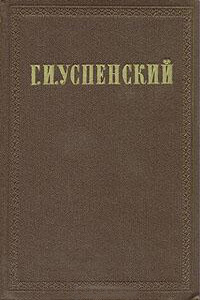
В настоящее издание включены все основные художественные и публицистические циклы произведений Г. И. Успенского, а также большинство отдельных очерков и рассказов писателя.
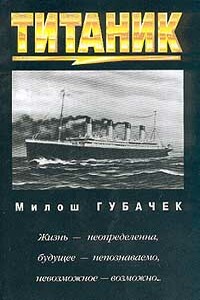
В ночь с 14 на 15 апреля 1912 года гигантское судно «Титаник» увлекло в ледяную бездну 1500 человек. Об этой одной из крупнейших в мире морских катастроф снято более десятка кинофильмов, написано около 50 книг, опубликовано шесть сборников стихов и две пьесы.Предлагаемая книга о «Титанике» является, по мнению критиков, лучшим и наиболее полным изданием на эту тему в мировой литературе. Ее автора отличает блестящее знание предмета и эпохи, а также тщательность и обстоятельность анализа событий, связанных с гибелью «непотопляемого плавучего дворца».
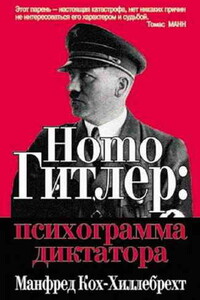
До сих пор историки многого не знают о Гитлере. Каковы были мотивы его мыслей и поступков? На чем основана легенда о его громадных знаниях и сверхчеловеческих способностях влиять на людей? Автор этой книги, немецкий профессор, в результате долгих и кропотливых исследований создал психограмму человека, возглавлявшего III рейх.
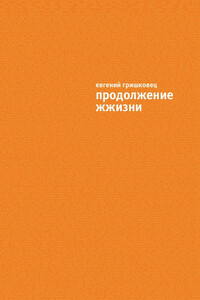
Книга «Продолжение ЖЖизни» основана на интернет-дневнике Евгения Гришковца.Еще один год жизни. Нормальной человеческой жизни, в которую добавляются ненормальности жизни артистической. Всего год или целый год.Возможность чуть отмотать назад и остановиться. Сравнить впечатления от пережитого или увиденного. Порадоваться совпадению или не согласиться. Рассмотреть. Почувствовать. Свою собственную жизнь.В книге использованы фотографии Александра Гронского и Дениса Савинова.
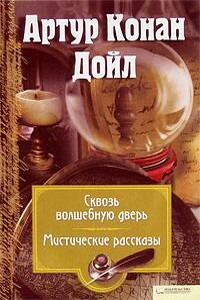
В настоящей книге Конан Дойл - автор несколько необычных для читателя сюжетов. В первой части он глубоко анализирует произведения наиболее талантливых, с его точки зрения, писателей, как бы открывая "волшебную дверь" и увлекая в их творческую лабораторию. Во второй части книги читатель попадает в мистический мир, представленный, тем не менее, так живо и реально, что создается ощущение, будто описанные удивительные события происходят наяву.

В книге рассказывается история главного героя, который сталкивается с различными проблемами и препятствиями на протяжении всего своего путешествия. По пути он встречает множество второстепенных персонажей, которые играют важные роли в истории. Благодаря опыту главного героя книга исследует такие темы, как любовь, потеря, надежда и стойкость. По мере того, как главный герой преодолевает свои трудности, он усваивает ценные уроки жизни и растет как личность.